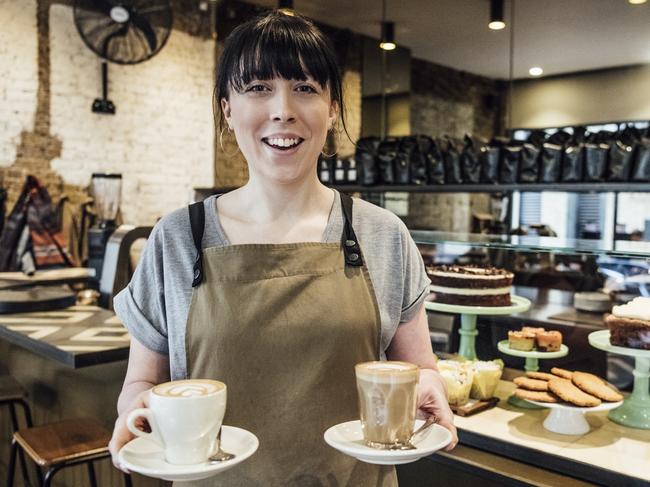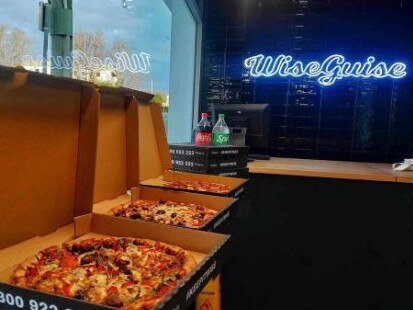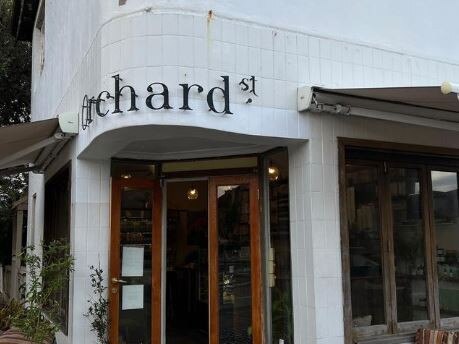‘$10 coffees’: Major food group’s warning as businesses struggle with rising costs
A major food group has issued a stark warning set to strike fear into Aussies up and down the country.
Restaurants & Bars
Don't miss out on the headlines from Restaurants & Bars. Followed categories will be added to My News.
Aussies could be forking out much more for their morning coffee if action isn’t taken to address rising business costs, the head of a food distributor group has warned.
Richard Forbes, the chief executive of Independent Food Distributors Australia, whose members provide food to 60,000 cafes, restaurants, pubs and clubs, said distributors have expereinced a 30 per cent increase in the cost of food over the last three years.
“We’ve all seen the price of beverages and food rise over the last two or three years. That’s not going to get any better until we start doing something to rein in the costs of business,” Mr Forbes told news.com.au.
“We can see it getting to a point of a $10 cup of coffee if things don’t improve … and if things aren’t done to stabilise the cost of business.”

As well as food, Mr Forbes said those in the supply chain are facing other rising costs including rent, insurance, petrol and energy.
“Our average members are facing energy bills of $25,000 per month – not per annum, per month,” he explained.
“All of those costs have to be absorbed. And at the end of the day, when you have rising energy costs, insurance, rents, fuel and labour costs in the beginning of the supply chain down to the end of it, then the people that end up paying more for their coffees, their piece of carrot cake, their meal at a restaurant, their parmigiana at a pub, are the consumers.”
Mr Forbes stressed cafes should not be blamed for increases prices, as businesses are simply trying to survive in an “operating environment that is unviable”.
“They are not increasing prices because they want to make more money,” he said.
“They are only doing raising the prices of their products to survive, it is as simple as that. “And if we don’t see the sort of relief that that we need, then the prices of your every day out-of-home products is just going to continue to rise.”

Call for action
Mr Forbes said governments at the state and federal level need to take urgent action to improve the operating environment for businesses.
“(The government) acknowledges that small businesses, which make up 97 per cent of all businesses, are the engine room of our economy, so the government needs to follow that up with action.
“We need cheaper energy, and we need it now.”
He also called for broader tax reform, noting rising inflation is negating tax cuts.
“(The government needs work) with the states to understand the impact that payroll tax has on businesses. Handing out a few $100 to a small business cafe or restaurant is not going to solve the problem.”
In the meantime, he said Aussies can play a part and support local businesses.
“Whatever you do, go and support your local cafe, your local restaurant, your local pub, get out there and try your hardest just to spend whatever you can.”

A string of closures
It comes as figures from the Australian Securities & Investments Commission show nearly 1600 businesses in the accommodation and food services sector went under in the past financial year.
The Australian Small Business Ombudsman’s Small Business Matters 2023 report also found 43 per cent of small businesses made no profit.
In the last two weeks alone, a number of businesses have been shutting up shop.
On Sunday, one of South Australia’s top seafood restaurants, permanently closed its doors on following the “slow death” of other businesses in the local community.
Angler, in Stirling, 15km from Adelaide’s CBD told its customers the struggling business was “not viable in this location”.
“It is with gratitude and sadness that we share the news that Angler Stirling will not be renewing our lease,” Angler owner, Amanda Prance, wrote in a post on social media.
A popular pizza chain in Tasmania also announced the abrupt closure of two of its stores last week.
WiseGuise Pizza, which opened its doors in the Launceston suburb of Mowbray in 2015, confirmed on social media it could no longer stay afloat after experiencing “constant decline”.

“It is with heavy hearts that we announce the immediate closure of our pizza stores in Burnie and Devonport,” management told customers on social media.
“Unfortunately due to incredibly tough economic conditions along with the rising costs of running a family business we have had to make this difficult decision.
“Despite all our efforts, recent times have shown a constant decline and while the three original stores continue to perform well, the stores on the coast struggle to remain viable.
Over in New South Wales, beloved Sydney wellness brand, Orchard St., shocked fans with the news it would cease operations for good last weekend after more than a decade.

Founder Kirsten Shanks told news.com.au the “heartbreaking” decision was “one of the hardest I’ve ever had to make” – but as an independently-owned small business, the rising cost of living had finally taken its toll.
“The team, our customers, the businesses we collaborate with mean everything to us. We feel like we’ve let so many people down – this was never part of our plan.”
According to ASIC, the Australian accommodation and food services sector has seen the second-highest insolvency rates in recent years after the construction industry.
In the 11 months through May, there were 1,751 insolvencies, compared to 1,127 in the same period a year ago and 713 the period before that.
Originally published as ‘$10 coffees’: Major food group’s warning as businesses struggle with rising costs



